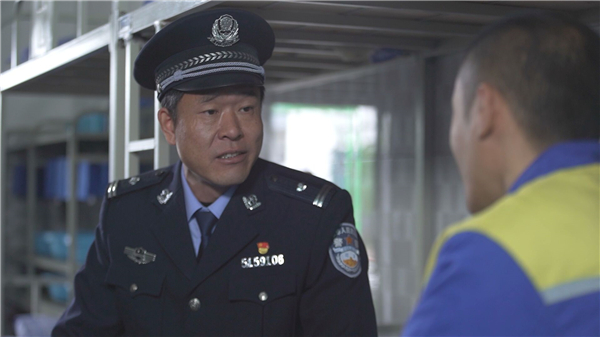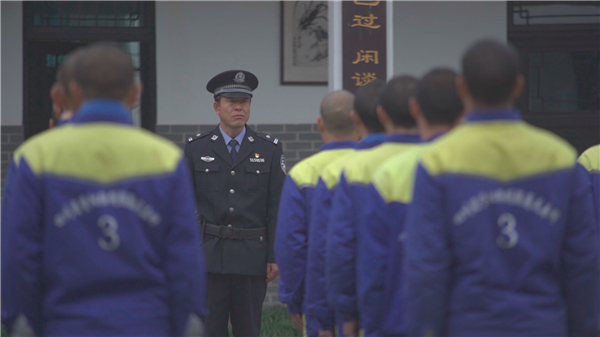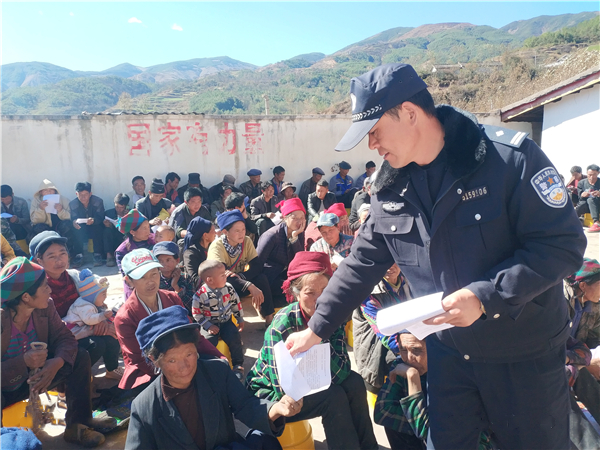Bai Ying: A role model of police officers for drug rehabilitation from Sichuan
Since being dispatched in 2012 to a compulsory drug rehabilitation center in Ziyang, Southwest China's Sichuan province, Bai Ying, a policeman who is now the deputy head of one of the brigades in the center, has been handling the most complicated and difficult task in drug rehabilitation work -- helping HIV-infected addicts abstain from drugs.

Despite the great challenge, Bai, with his rigorous and meticulous attitude work, has never made a mistake in preparing documents and, more importantly, has never seen the addicts under his supervision break any law or rule.
"Prejudice against and fear of HIV disease is the biggest obstacle to the group management of HIV-infected drug addicts," said Bai. "The prejudice and fear are rooted in our ignorance about HIV."
To tackle this issue, Bai spent a lot of time in conducting face-to-face communication with drug addicts.

Disbelieving that he was infected with HIV, an addict surnamed Yang resisted any rehabilitation treatment after joining Bai's brigade, and even proclaimed that he would take revenge on police officers. As a result, Yang was subjected to restraint measures.
One day Bai voluntarily approached Yang and relived him of the measures before sitting side-by-side with Yang. With a smile, Bai started to patiently lecture Yang about HIV and encouraged him to restore his morale and bravely face the reality.
Although the first conversation didn't bring about much change as Yang still doubted and dismissed what he said, Bai didnt give up and spent more time talking to Yang.
With Bai's persistent effort, Yang's attitude began to turn positive, and he even asked his wife to be tested for HIV. He was thrilled after learning that his wife tested negative, which later became the major reason he is still free from drugs three years after his return to society.
"Officer Bai relieved me of the restraint measures, and patted me on my shoulders while saying goodbye to me," said Yang. "He neither discriminated against nor abandoned me, nor did my wife. It was Officer Bai who gave me a rebirth."

In another case, an addict surnamed Shi, an ethnic Yi, was depressed and refused to communicate with others after learning that he was infected with HIV.
To make matters worse, Shi also suffered from a festering sore on his right leg, which didn't get any better after multiple medical treatments.
Considering the difficulty Shi had in bathing because of the sore, Bai thoughtfully bought a small chair and plastic bags for him, which enabled him to take a bath while sitting on the chair.
Bai's thoughtfulness and care for him eventually thawed Shi's frozen heart and changed his attitude about life. "Although it was unfortunate that I was infected with HIV, I felt very lucky to meet you," Shi told Bai before leaving the center. "I will tell my fellow-townsman to stay away from drugs and make sure I'm the last person to get infected with HIV."
Over the past six years, Bai has overseen more than 800 HIV-infected addicts and understands very well their sadness and dismay. With the great efforts he and his colleagues have jointly made, no addict from his brigade intentionally spread HIV after their return to society.
"My goal is to make HIV-infected drug addicts face reality in a right way and live their lives as normal people," said Bai.
In June 2018, summoned by the provincial government of Sichuan, Bai joined a work team to help people get out of poverty in Liangshan prefecture, an area ravaged by narcotics and HIV.
He started the anti-drug and HIV prevention work with local pupils by holding lectures on the harm of drugs. He also launched a publicity campaign on the subject among ethnic Yi residents, many of whom voluntarily joined him in the campaign.

Ministry of Justice of the
People's Republic of China
All rights reserved. Presented by China Daily.
京ICP备13016994号-2


